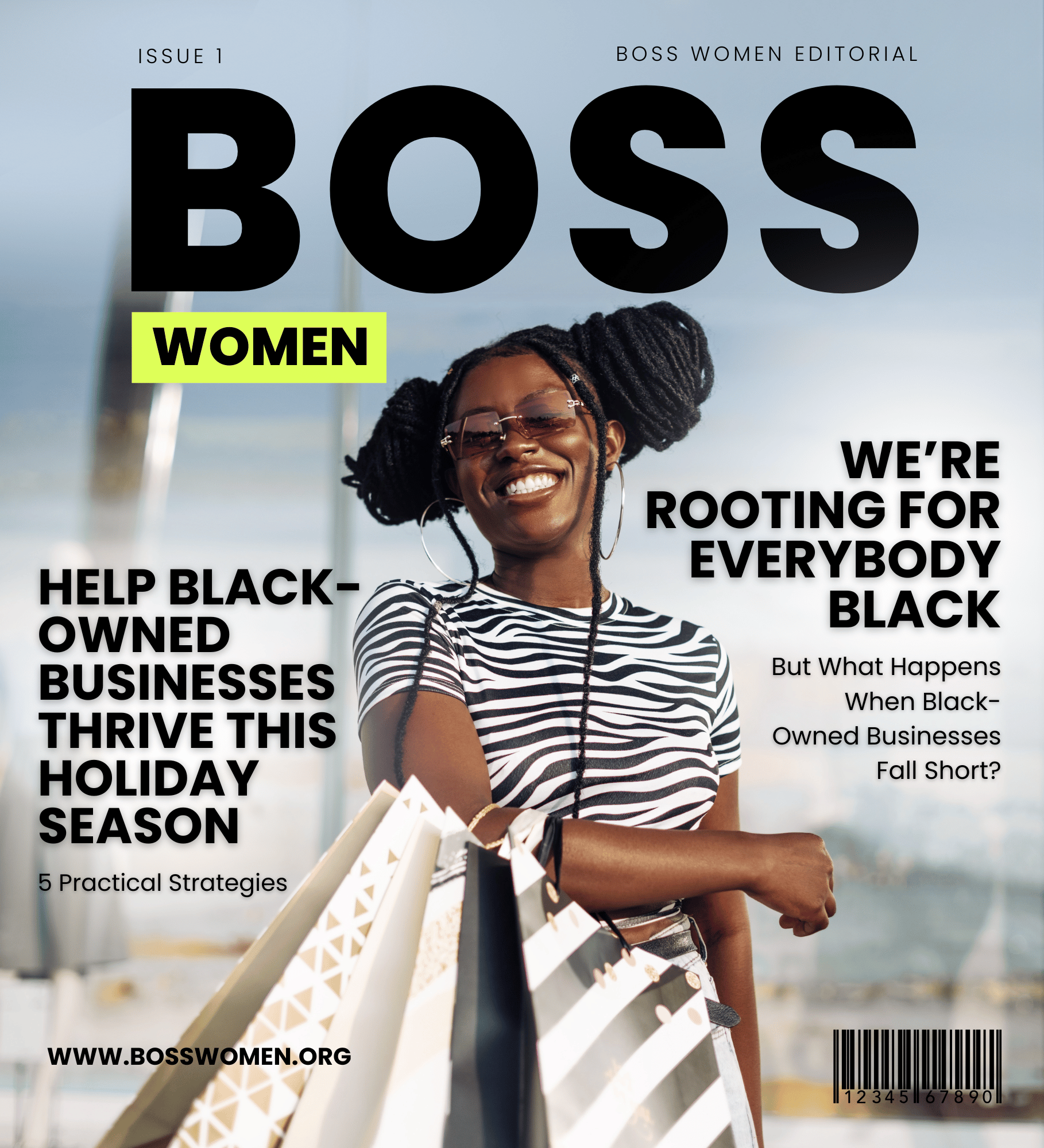We’re excited to close Mental Health Awareness Month with a first hand account from our own Boss Woman Therapist, Dr. Reston Bell, who not only has provided us with great insights into what workplace trauma looks like for Black women, but also has her own story of adversity at work to share.
As Black women we are often the only in our office spaces and it can feel isolating to not know there are other women in similar situations as you; that can be a community support. The Boss Women Media team wants to create more avenues for conversation and support for Black women who are experiencing this.
That said, let’s dive into Dr. Reston Bell’s experience.
Can you describe your experience with workplace trauma and how it impacted you?
I came into a position that was incredibly political. It was an agency where there were many politics at play that I didn’t know much about. I did my research but again, it’s hard to know what workplace politics looks like until you’re in the role. With that said, there was a lot of undermining across our department. My supervisor wasn’t well respected and inherently that impacted how others viewed and treated me.
There were many red flags along the way. I realized over time that I was the fourth person in my position within a three year span. No one had made it more than a year in the role. There was a certain colleague who would tell me, “you are not competent to be here,” or “this isn’t the place for you,” “you should not have been hired,” “you’re too new in the field.” That colleague was asked to train me but refused – despite requests coming from my supervisor and I. Consequently, my supervisor and I knew that there were some gaps in my knowledge of my role. Though I wasn’t prepared, eventually they asked me to cover for her during a short absence, and I was given a brief ‘day before’ style cross training. Having not been able to shadow her, it was difficult.
When you’re in mental health, it’s critical that as you transition to a specialization, it’s important that you get training and supervision in that new space. Although the skills transfer there will always be nuance to that work. For the sake of my learning and our ethics, It was important to my supervisor and I that we adhered to this.
I was kept out of certain spaces and isolated to doing exclusively my direct work. It didn’t help that my office was located at the bottom level of a public building, in the back of a dead end hallway. I was meeting with patients who had court dealings. Although individuals with mental illness are NOT inherently dangerous or violent, many of my clients were not stabilized so it wasn’t all that safe. After multiple attempts to improve the presence of security or be moved out of the space, our efforts fell on deaf ears. Essentially, it took a significant security breach for me to get out of that space.
But back to the unwelcoming colleague.
***
After several months of negative interactions, I started to make the mistake of believing that I shouldn’t be there. I started to question whether what she was saying was true – I shouldn’t be here.
This is where there is so much power in knowing who we are. When we have uncertainties about who we are, we’re more inclined to believe others’ opinions and doubt ourselves. It was a lesson in security. Imposter syndrome is a real thing, that many experience, but definitely those from marginalized groups who break into new spaces. We question – are we really meant to be here, do I look like a kid in my parents clothes? That said, we are often more highly trained than those around us — and therefore we should own who we are in all spaces.
I began looking for other work in different states. That’s when I learned what limitations were on my licensing in order to work in various states. The extra post doc that I did and courses looked nice but in some states were not enough.
I felt trapped and like I did not have an out. So I decided to keep my head down, do the work and believe that my name and reputation will supersede opinions and politics over time.
***
In one specific case, my colleague who manages the office’s document filing, shared that she’d improperly disposed of a document that my supervisor wanted me to retrieve. It was at this point that I really had to draw the line. I shared the situation with my boss and subsequently received my own filing system and a new office.
Access to me was closed off to my challenging colleague as I no longer had to go into the shared office space. It was nice for a few months until I received a call from the licensing office. They had received a call that I didn’t meet the educational prerequisites for my license. I asked them to check my file and they shared that they couldn’t locate my documents. I shared some of the challenges and how his investigation may be misused by an angry colleague.
I provided the investigator with everything that I had – all paperwork and educational licenses. Over time, I came home to a certified letter on my doorstep that shared that I had been given my license in administrative error. They apologized within the letter stating that there was no fault in the materials I shared but that I had not met criteria. Ultimately this would prevent me from maintaining my full license in this specific area.
I was devastated. After everything that I went through, what the heck in an “administrative error,” and how in the world did they make it!? I immediately notified my supervisor and let her know that I couldn’t work until this was figured out. She apologized profusely and assured me that “it’s not you” but the larger dynamics at play in our office.
***
It was clear who was behind this, everyone knew. While the investigation was going on, it unearthed the deep set of corruption happening within the office. There was a memo sent to officials as well as the media that recapped an audit of my department. Included were several inaccuracies about me specifically, my licensing and department overall. Articles were written in the news and a narrative framed around my practice. Our legal department quickly got involved, wrote a rebuttal and addressed many of the inaccuracies in an attempt to hold folks accountable.
What ultimately came out of the investigation was that I was beyond eligible for my psych associates license as opposed to the Licensed Clinical Psychology license that I held at that time, and that I had done nothing wrong. My job refused to fire me because of the error of others. The licensing agency paid for my new license and I continued on with my work at the company.
This entire situation unearthed years of inappropriate behaviour and a profound lack of accountability. It could no longer be ignored. I was being placated as part of larger issues and yet it caused me to learn so much.
The lessons were immense and as time passed, I came to terms with my story and the power of advocating for myself. Although the circumstances are complex, the trauma was present throughout and building.
I look forward to sharing how I overcame them.
[Check out next week’s Black Women at Work, pt. 3for more details on how Dr. Reston managed through this difficult situation at work]





